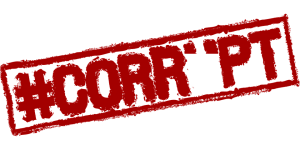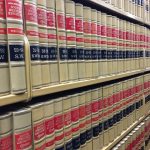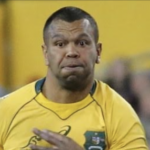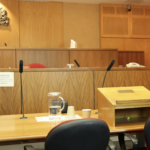FIFA Scandal: Is Our Political System Corrupt?

Australia has recently been accused of corruption in a report by the FIFA ethics committee into the World Cup bid for 2022.
The Committee alleges that Australian officials broke the rules around bids and ethics and tried to buy votes, later attempting to cover up their actions.
These allegations are considered serious, and the Football Federation of Australia (FFA) has responded, saying it will review all the evidence and seek advice from the FIFA ethics committee on the next steps.
The FFA claims that it has co-operated with the investigation, and provided full transparency during the process.
The Australian campaign to host the World Cup was overseen by then Prime Minister Kevin Rudd, and cost taxpayers $46 million.
Among the allegations are reports that Australia invested money in developing countries in exchange for votes.
Australia was also accused of trying to gain favour with and bribe now disgraced former FIFA president Jack Warner.
The FIFA report to be challenged by investigators
In an interesting development, the summary of the FIFA report claiming corruption by Australia is going to be challenged by the investigator who carried out the in-depth probe into the allegations.
Michael Garcia claims that FIFA misrepresented facts and presented inconclusive evidence in the summary of its report.
FIFA has refused to publish the report in its entirety, stating that to do so could create legal problems.
It claims that the evidence contained in the report and gathered during the investigation isn’t sufficient to compromise the integrity of the bidding process as a whole, and cleared both Qatar and Russia of any wrongdoing in relation to their bids.
No matter the outcome, incidents like this raise the question of just how prevalent corruption is in our political system.
Is this something that needs to be addressed?
NSW Legislature “most corrupt” in Australian history
According to recent reports by the Independent Commission Against Corruption (ICAC), the current NSW Legislature is the most corrupt that has ever been seen in the history of Australia.
In the past year, 11 Liberal politicians have resigned, been fired, or have moved to the cross-benches amid allegations of corruption.
A number of Labor politicians have also been found to be corrupt by the ICAC, including Eddie Obeid, Joe Tripodi and Ian MacDonald.
Former minister Eddie Obeid is due to face court over allegations that he used his political influence to lobby senior public servants and ministers over retail licenses that his family held for restaurants at Circular Quay.
Another former NSW minister, Ian MacDonald, is also being charged after he “gifted” a Hunter Valley mining licence to an associate without going through a proper tender process – directly against advice from members of his department.
Other widely reported instances of political corruption include former NSW Premier Barry O’Farrell, who resigned after it came to light that he had lied during ICAC investigations concerning his acceptance of a $3,000 bottle of wine from a businessman.
Mr O’Farrell has recently announced that he will be stepping down from politics permanently, and won’t be contesting his seat in the next state election.
It would appear the system is being abused by some of the top politicians, who are putting their financial interests and those of their donors above the needs of voters.
Why is corruption so widespread in politics?
Many of the issues around corruption can be blamed at least partially on a lack of serious penalties for those convicted of politically corrupt activities.
Many instances of corruption have come to light in recent years after the ICAC started taking a more proactive stance in investigating and taking further action against corrupt politicians.
Due to the widespread number of politically corrupt activities recently exposed by the ICAC, a number of changes to the system and tougher laws have been suggested.
Political donations system to be overhauled
NSW Premier Mike Baird has announced changes in the way that political donations for elections will be dealt with after commissioning an expert panel to look at electoral funding reform.
The changes include limits on the amount that political donors are allowed to donate, and an increase in penalties for those found guilty of corrupt conduct.
The recommendations by the panel so far include ethics training for MPs, an increase in penalties for serious electoral offences, and a lengthening of the statute of limitations for electoral offences from three years to ten years.
Mr Baird is currently waiting for the final report to be released in January, but if he goes ahead with the recommendations, those found guilty of corruption would face a maximum penalty of ten years’ imprisonment instead of the current two years that those convicted face.
It has been recommended that these changes be implemented before the next election, which is due to be held in March 2015.






